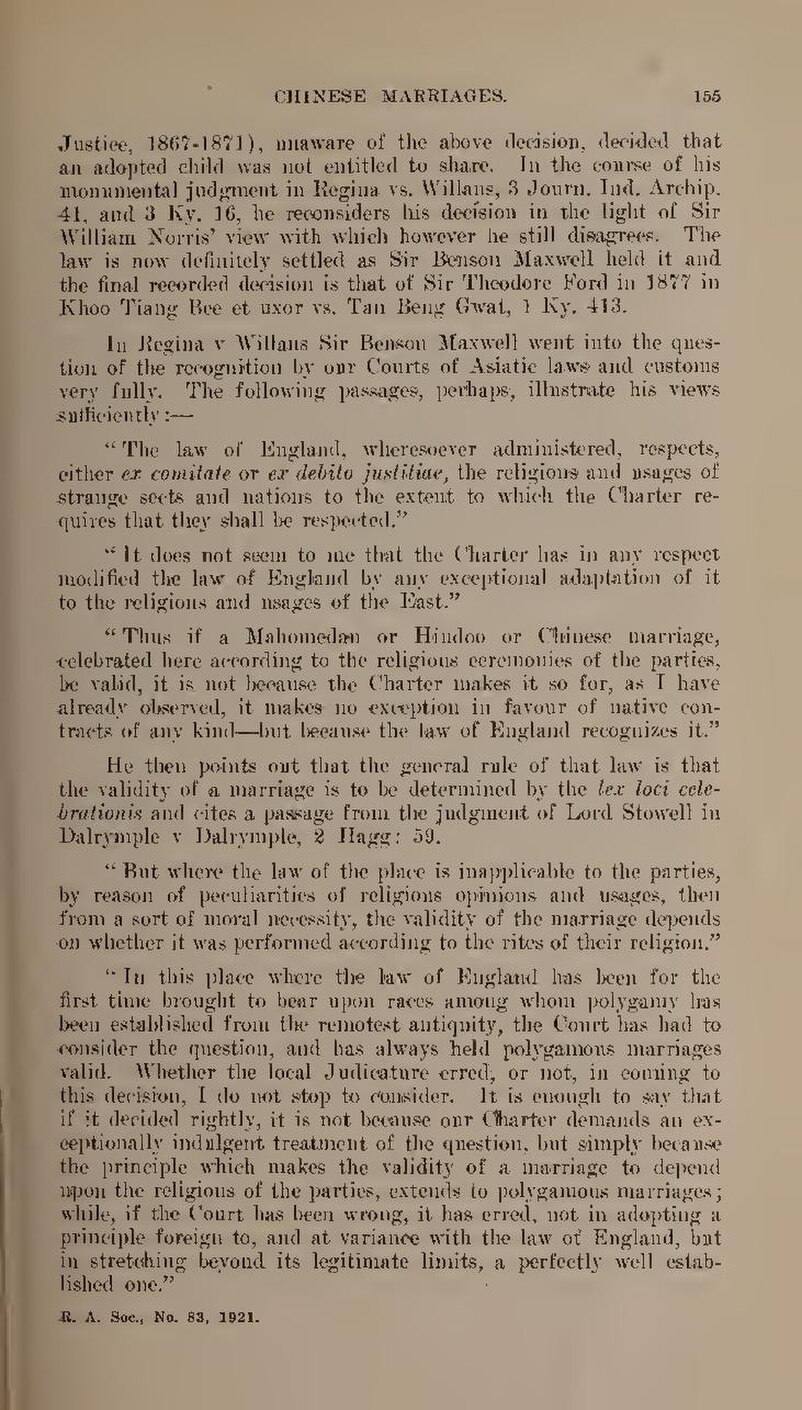Justice, 1867-1871), unaware of the above decision, decided that an adopted child was not entitled to share. In the course of his monumental judgment in Regina vs. Willans, 3 Journ. Ind. Archip. 41, and 3 Ky. 16, he reconsiders his decision in the light of Sir William Norris' view with which however he still disagrees. The law is now definitely settled as Sir Benson Maxwell held it and the final recorded decision is that of Sir Theodore Ford in 1877 in Khoo Tiang Bee et uxor vs. Tan Beng Gwat, 1 Ky, 413.
In Regina v Willans Sir Benson Maxwell went into the question of the recognition by our Courts of Asiatic laws and customs very fully. The following passages, perhaps, illustrate his views sufficiently:—
"The law of England, wheresoever administered, respects, either ex comitate or ex debito justitiae, the religious and usages of strange sects and nations to the extent to which the Charter requires that they shall be respected."
"It does not seem to me that the Charter has in any respect modified the law of England by any exceptional adaptation of it to the religions and usages of the East."
"Thus if a Mahomedan or Hindoo or Chinese marriage, celebrated here according to the religious ceremonies of the parties, be valid, it is not because the Charter makes it so for, as I have already observed, it makes no exception in favour of native contracts of any kind—but because the law of England recognizes it."
He then points out that the general rule of that law is that the validity of a marriage is to be determined by the lex loci celebrationis and cites a passage from the judgment of Lord Stowell in Dalrymple v Dalrymple, 2 Hagg: 59.
"But where the law of the place is inapplicable to the parties, by reason of peculiarities of religions opinions and usages, then from a sort of moral necessity, the validity of the marriage depends on whether it was performed according to the rites of their religion."
"In this place where the law of England has been for the first time brought to bear upon races among whom polygamy ras been established from the remotest antiquity, the Court has had to consider the question, and has always held polygamous marriages valid. Whether the local Judicature erred, or not, in coming to this decision, I do not stop to consider. It is enough to say that if it decided rightly, it is not because our Charter demands an exceptionally indulgent treatment of the question, but simply because the principle which makes the validity of a marriage to depend upon the religious of the parties, extends to polygamous marriages; while, if the Court has been wrong, it has erred, not in adopting a principle foreign to, and at variance with the law of England, but in stretching beyond its legitimate limits, a perfectly well established one."
